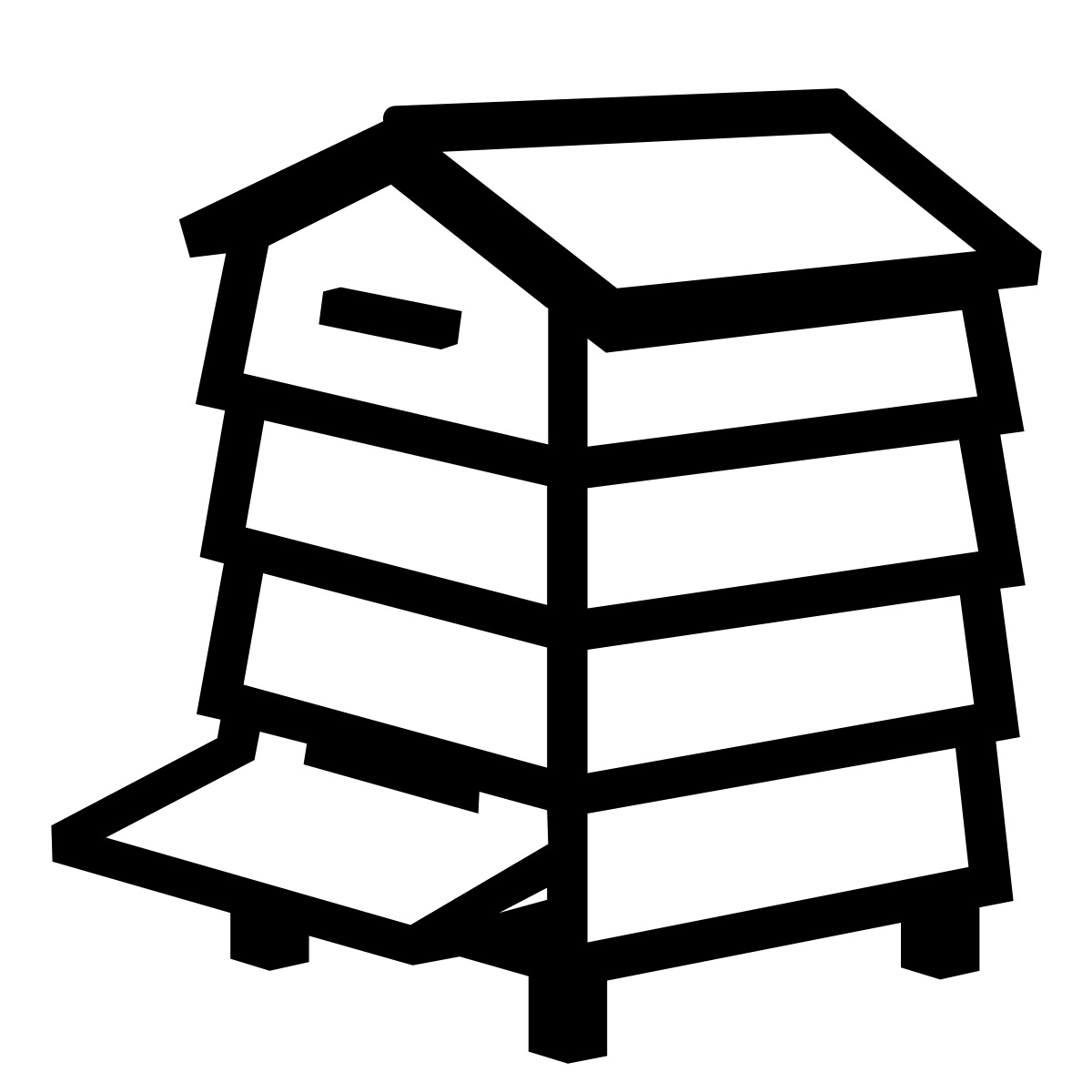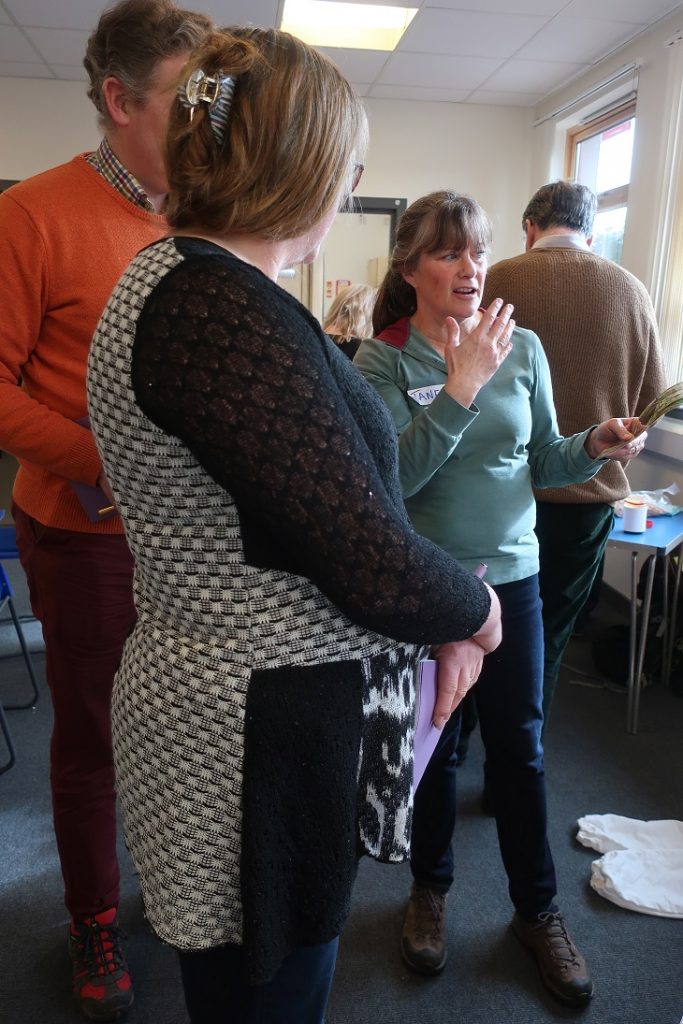
Interactive Learning.
Sometimes local beekeeping associations stagnate when it comes to teaching. Beginner courses can end up being delivered by old timers with lots of experience in the field but not necessarily any knowledge of how to teach, or deliver an interesting presentation. Our local association is fortuntate to have recently formed a team with a good mix of experience in all aspects of practical education and beekeeping experience. Importantly, this team comprises a few younger beekeepers who bring recent work experience to the mix.
Our ace educator Jane Geddes organised and ran a beekeeping “taster” day for members of the public who were interested in finding out more about bees and beekeeping. The programme ran from 10:00 hours to 14:00 hours. Eight people attended, all of whom, had either little or no experience of keeping bees. It was designed to be delivered by beekeepers with experience but who had not necessarily completed the Scottish Beekeepers’ Association modular examination system. All the tutors had at least achieved Basic Beekeeper Certificate level. Some had passed one or more exam modules, and there was a Scottish Expert Beemaster on the team.
Student-Centred Learning.
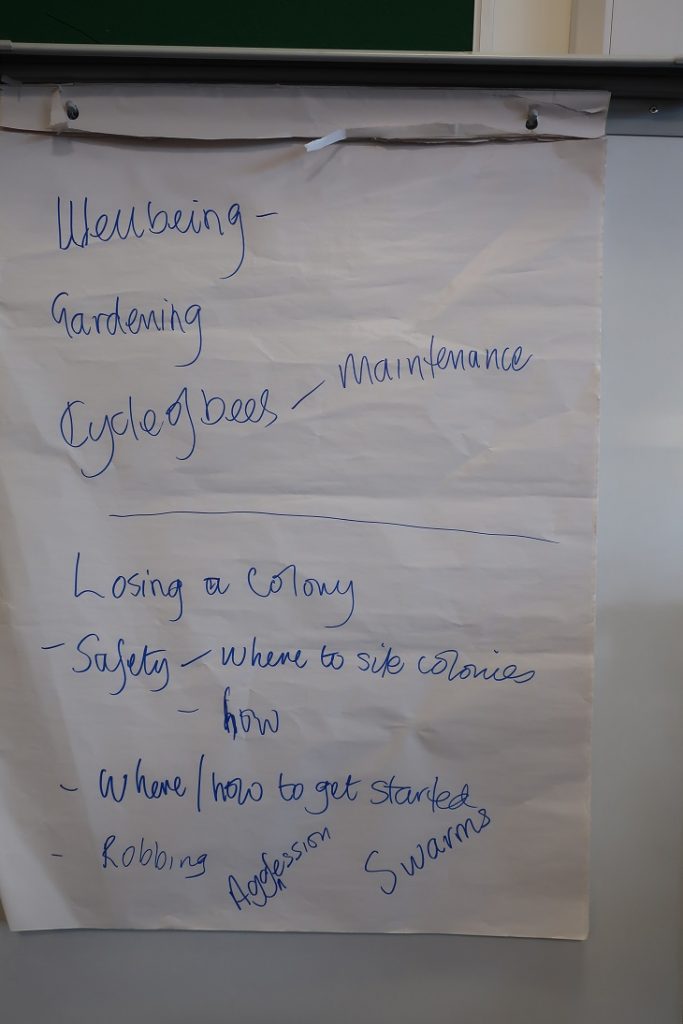
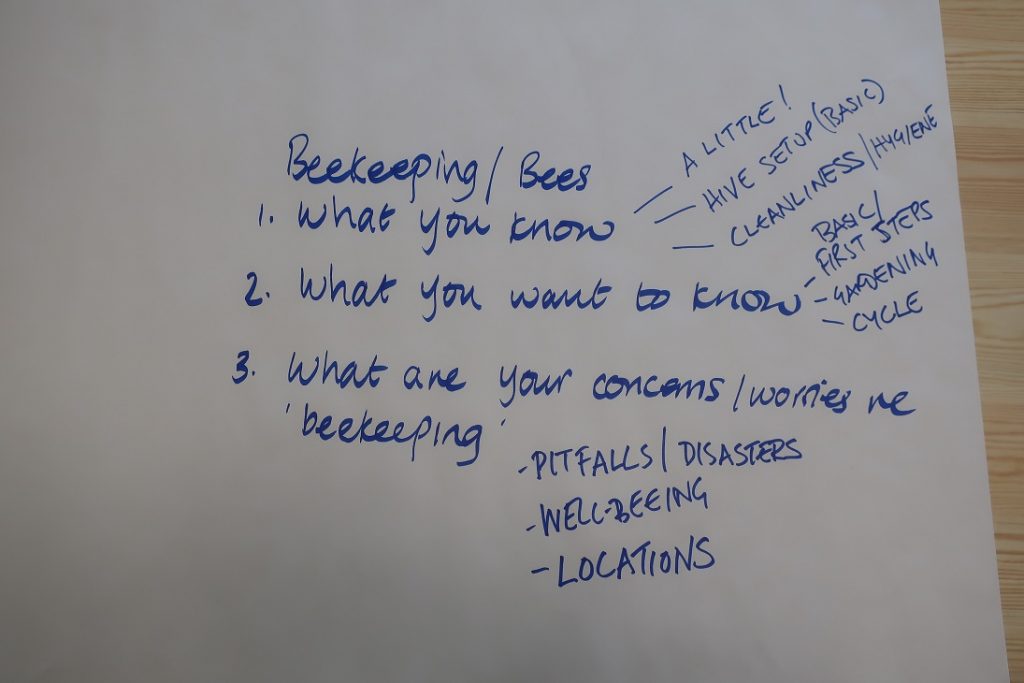
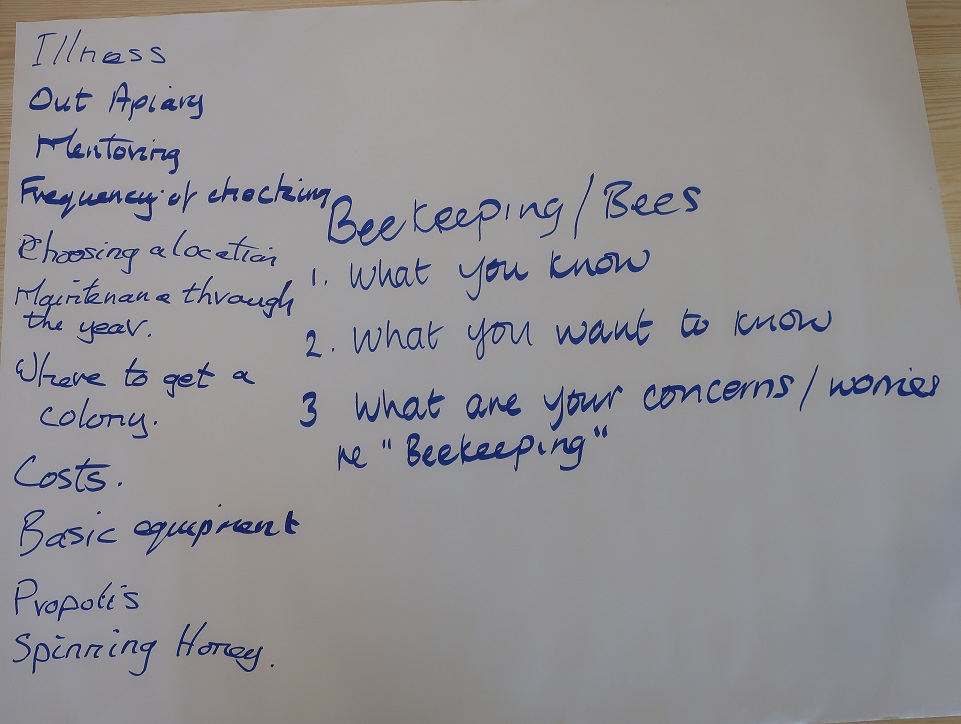
The course was interactive and student-centred with plenty opportunity for them to ask questions, and recap if an individual needed to. The day started with registration and tea/coffee on arrival. Notebooks, pens, and name stickers were issued. An “icebreaker” exercise was first on the programme. That involved each participant chatting with someone that they had not met before then introducing them to the rest of the group. In a few minutes the pairs discovered enough information to introduce each other in a relaxed informal way. From a facilitator standpoint, the group gelled well and generated a lot of lively debate. Lots of questions arose at each station.
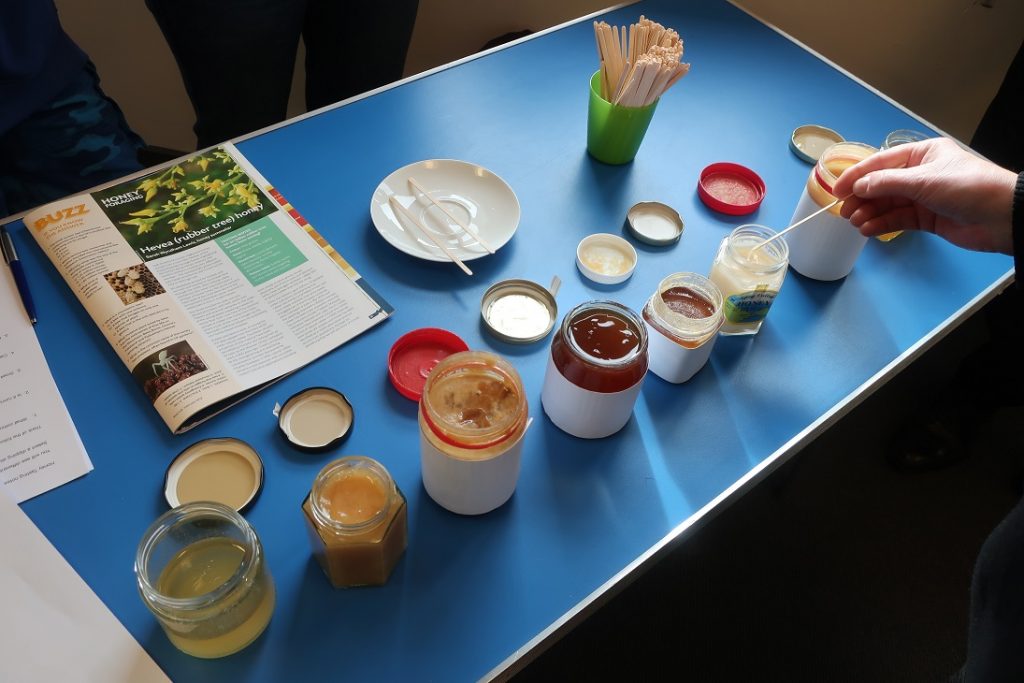
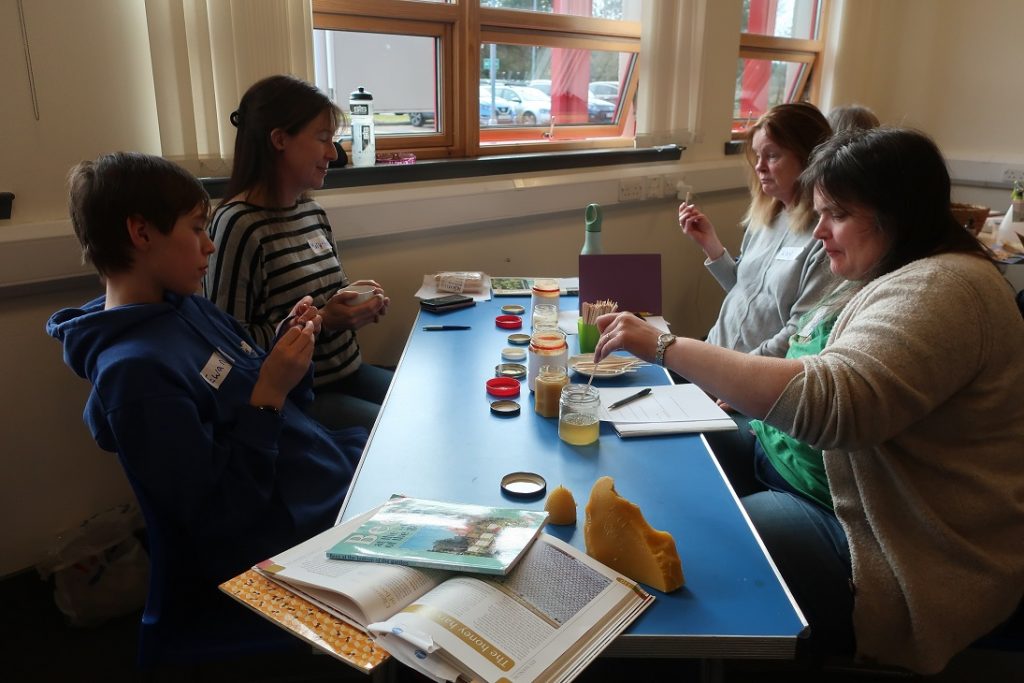
The introduction exercise was followed by the leader establishing learning outcomes, as identified by the group, through discussion around a table. These objectives were displayed on a flipchart. The group was then divided into smaller groups that rotated round each of the four information “stations” every 30 minutes between breaks for morning tea and lunch. The stations covered topics relating to four themes; “what is in a hive?” “equipment & costs,” “honey tasting,” and “the what and why of swarming.”
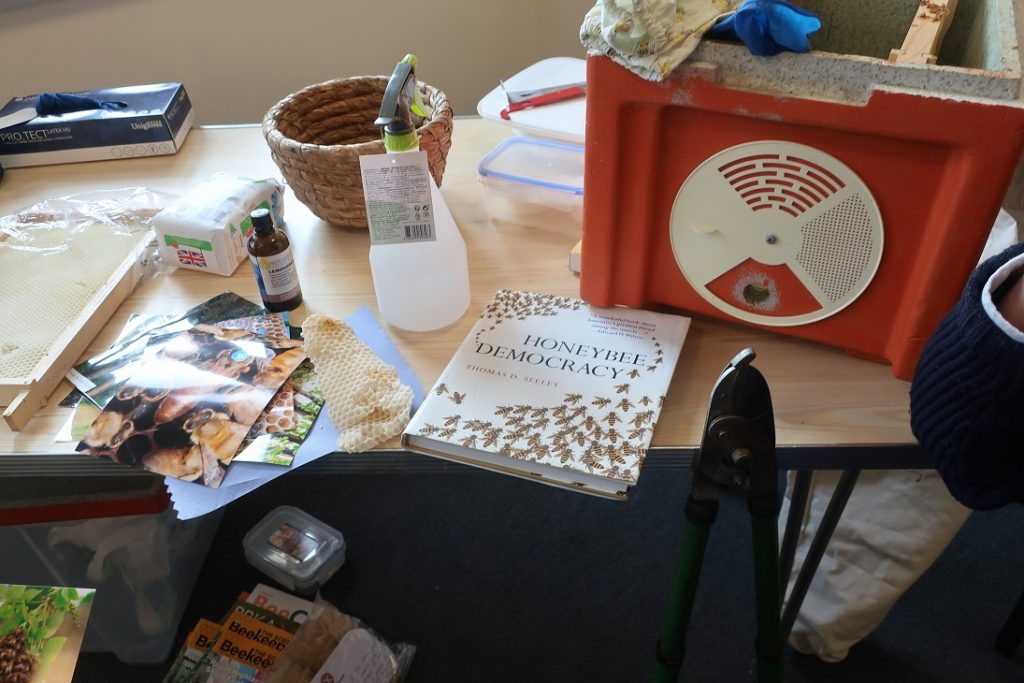
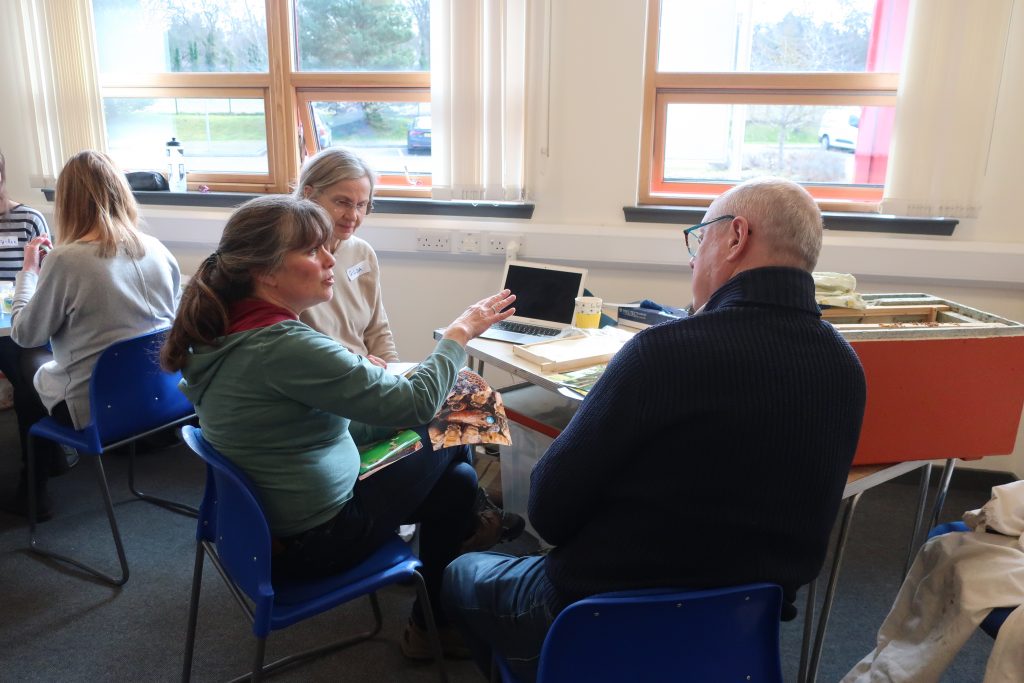
The students brought packed lunches, but cake, biscuits, and refreshments were provided free. Promotional packets of flower seeds, and back copies of The Scottish Beekeeper Magazine were provided by the Scottish Beekeepers’ Association, and membership forms for the local beekeeping association were available. Another intention of the day was to raise awareness that honey bee colonies are not in decline but, alongside all the other many pollinators, are at risk due to many factors and that everyone can help pollinators without keeping honey bees.
Discussion/Outcomes & Feedback.
At the end of the sessions around the stations, Jane brought the groups together to discuss any outstanding questions and give feedback.
Jane designed a simple qualitative feedback form for participants to give suggestions on how the course could be improved. She says, “we evaluated the Tasting Beekeeping course with a view of repeating the course in the future.” Jane favours qualitive over quantivive feedback form which she believes give more useful information in a simple form that is easy for participants to complete.
Simple Questionnaire.
Four simple open-ended questions were asked in order to maximise qualitative feedback and points for development:
- List the main things you learned today
- How would you improve the course? Would you change any of it- is there anything you would have liked added.
- What will you do with the information you have learned today?
- Would you recommend this course to your friends?
Response.
8/8 replied.
Q1- Learning included- equipment required (3), how to get started (3), bee behaviour (2)/psychology/bee communication within the bee colony, reference books suggested, “there is a lot to know”, types of bees (queen/workers/drones) and how they function, honey production, safety, hygiene (3), swarming and queen activity, different tasks, different types of honey, basic messages about bees and the keeping of them
Q2 Improving /changing /adding to the course- “Nothing springs to mind” “found it very helpful and I would recommend it to others”
“The course couldn’t be improved, lots of enthusiasm and info- lots to take in. More courses periodically to build on today”
“Perhaps some short videos of bee activities. There’s a lot to take in but the four stations idea was good and the duration at each was right”
“I found the course very well designed. It was interesting all the way through and very …(can’t read).. and easy to understand. Loved the interaction and the individual support. I love a
visual overview that we … (Drawing of Learning outcomes from the group) – great day!- thanks”
“Maybe start with a video of some of the information as felt like a lot to remember, although these things were repeated and that was helpful”
“For a complete beginner there was a lot of detail and it was a little bit overwhelming at times. More social interaction time with participants would improve the experience”
“That was great. Maybe a part 2- where you can go and see bees up and personal”
Q3- What would you do with the information you have learned today:
Investigate the topic further and not jump straight in”
“I will attend local beekeeping meetings to learn more
“Head home to the internet and recap. Today feels like the “beginning” of a new venture
“Build on it and keep asking questions s- keep working with a mentor and apply our new knowledge”
“Being more aware … (can’t read the writing) .. being curious for some experience”
Q4. Would you recommend Tasting Beekeeping to your friends?
8/8 said yes.
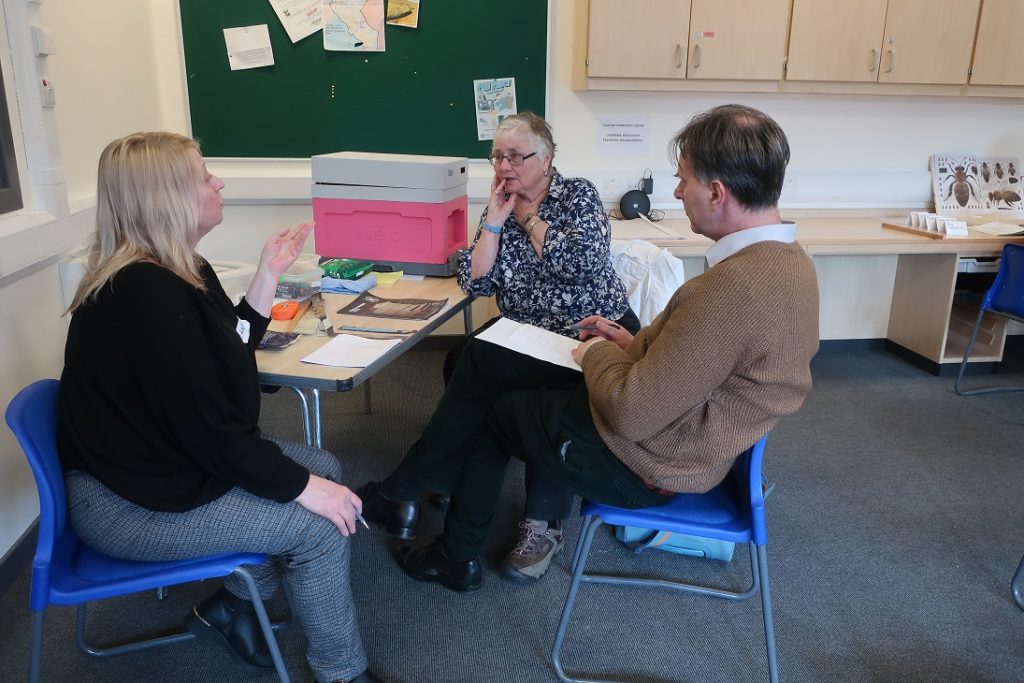
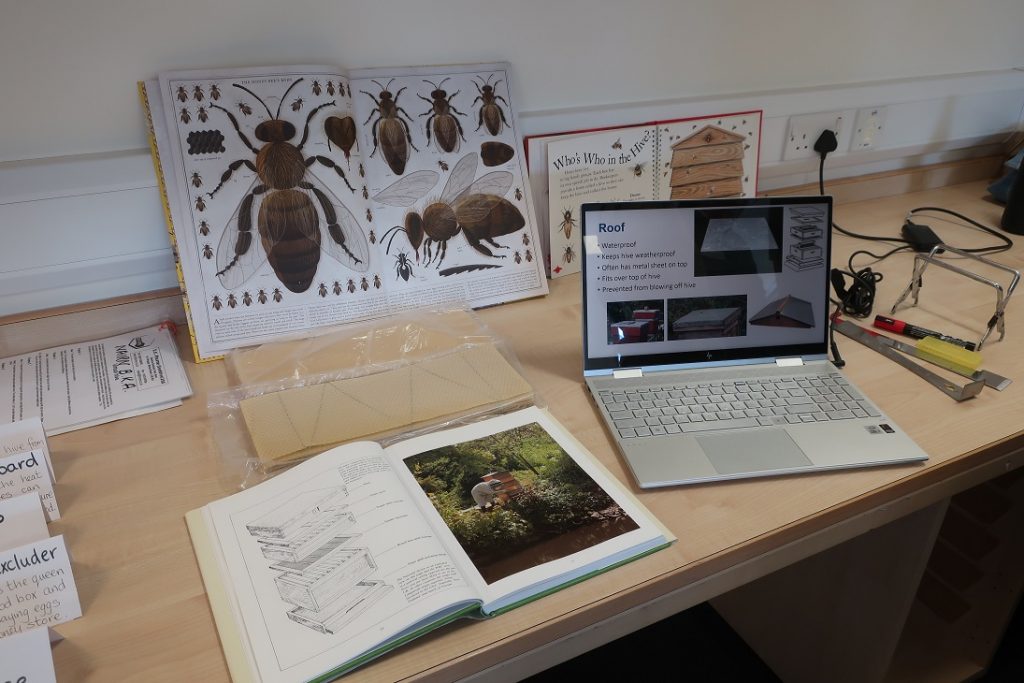
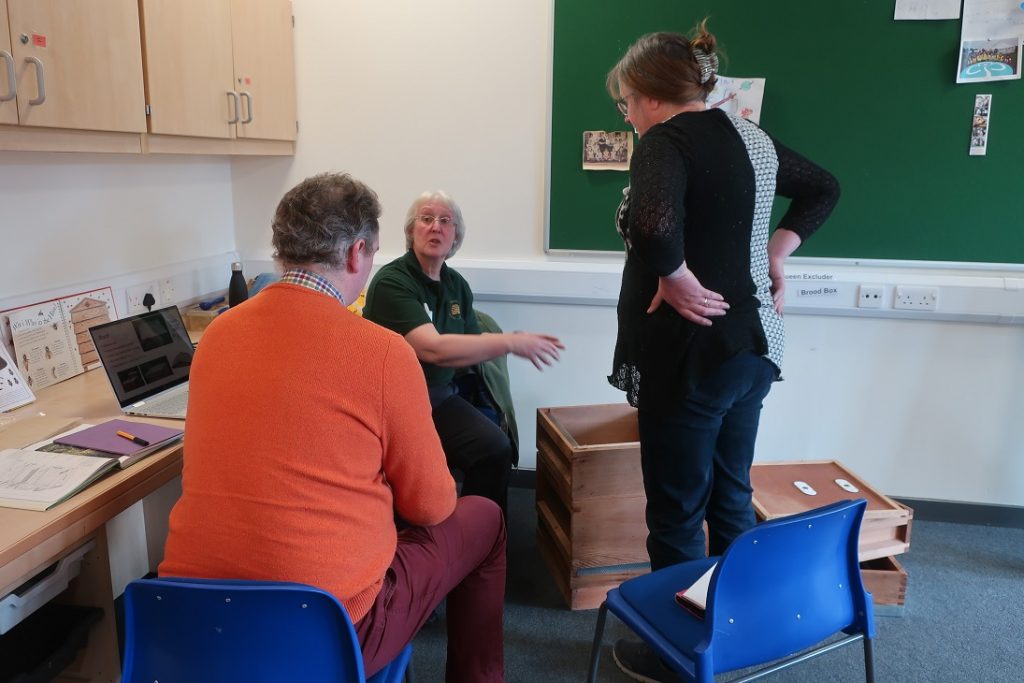
Free Seeds & Gardening Tips.
Not everyone will go on to keep bees but everyone learned a little more about the importance of promoting all pollinators and improving forage through thoughtful gardening. Packets of flower seeds and planting leaflets donated by The Scottish Beekeepers’ Association were given out at the end of a successful training day.
Review of the Day.
The tutors reviewed the day and concluded that the cost of 4 hours training (£10) would need to increase to make it a viable exercise in future. It might just have broken even after hire of hall was accounted for. However, this training day was really about trying a new method of introducing the public to honey bees and it was successful. Now we have a template that can easily be replicated with some small improvements.
Coming Soon.
Look out for upcoming blogs about beekeeping in Seychelles.
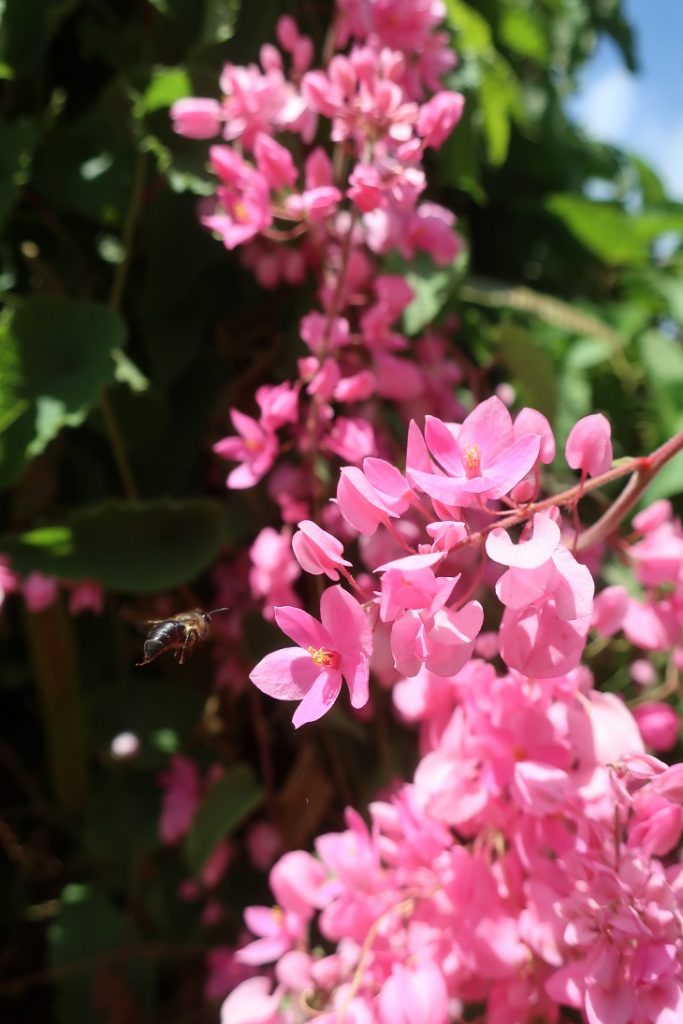
If you enjoyed reading this, you can subscribe to receive future posts by email. Also, if this article helped you with your work, please consider making a small donation to keep our site running. You can do this through the “Donate with Paypal” button that appears at the side of the screen if you are using a desktop, or by scrolling towards the bottom of the page if you are using a mobile.
Thank you, Ann 🐝
